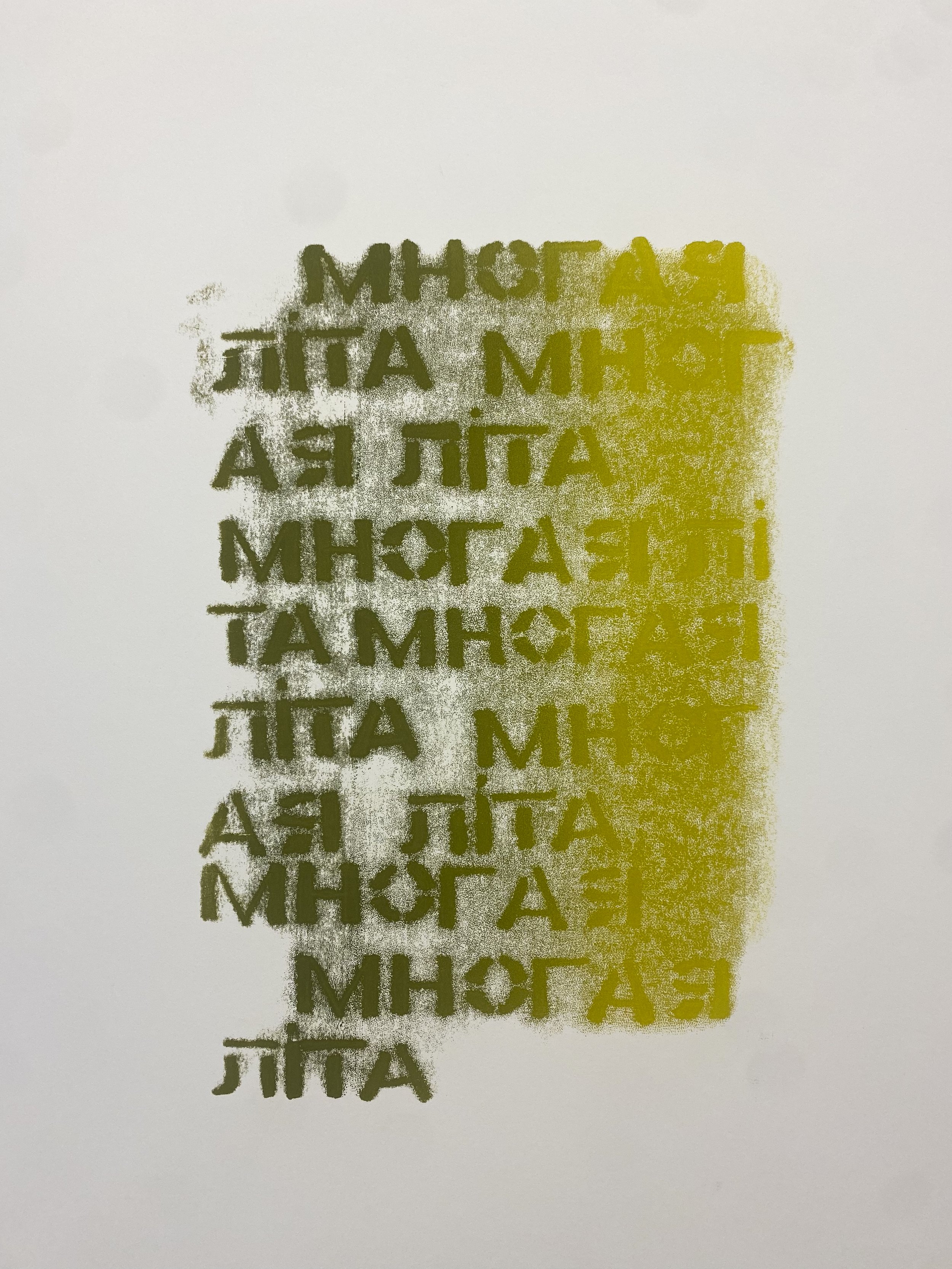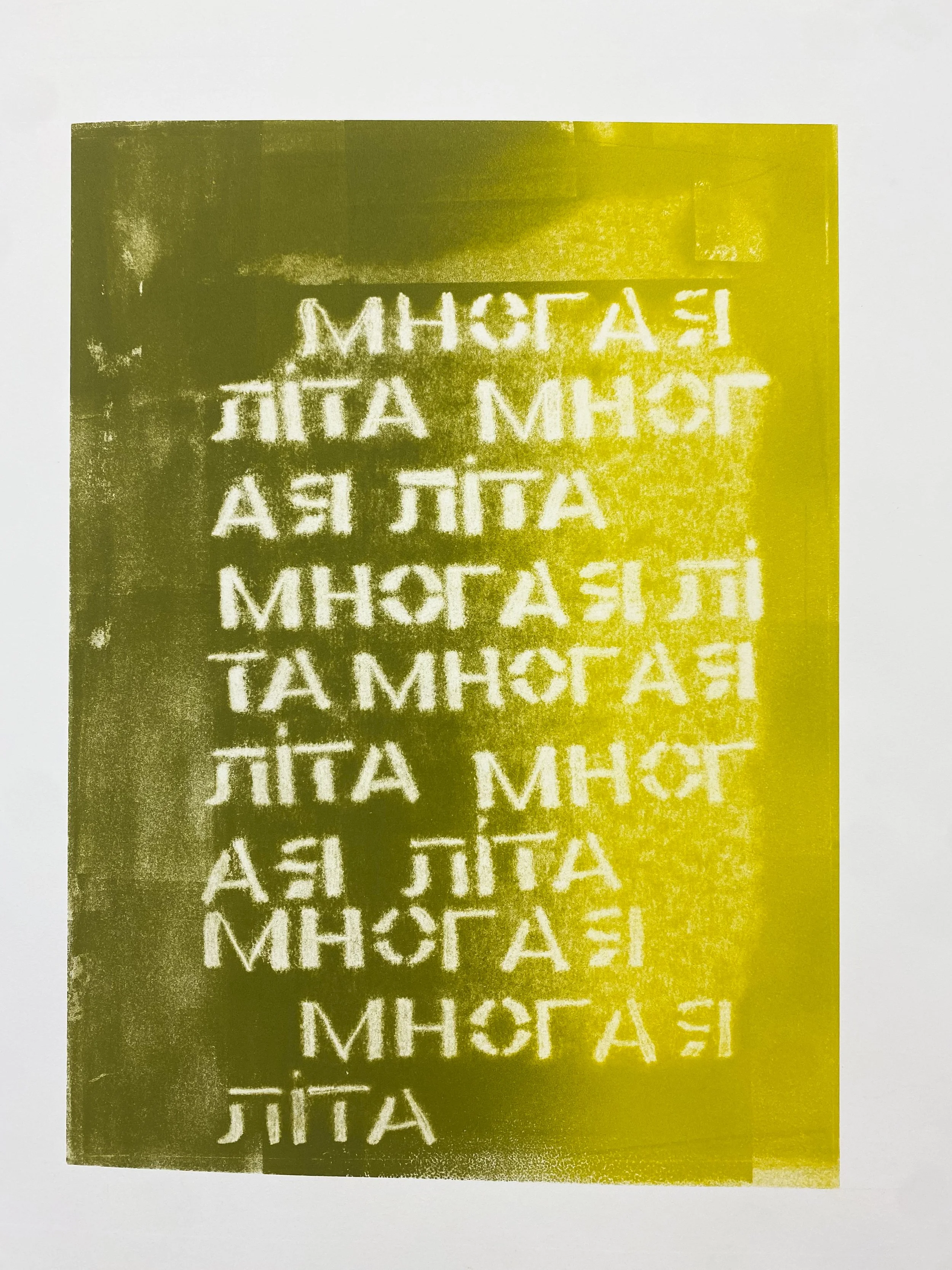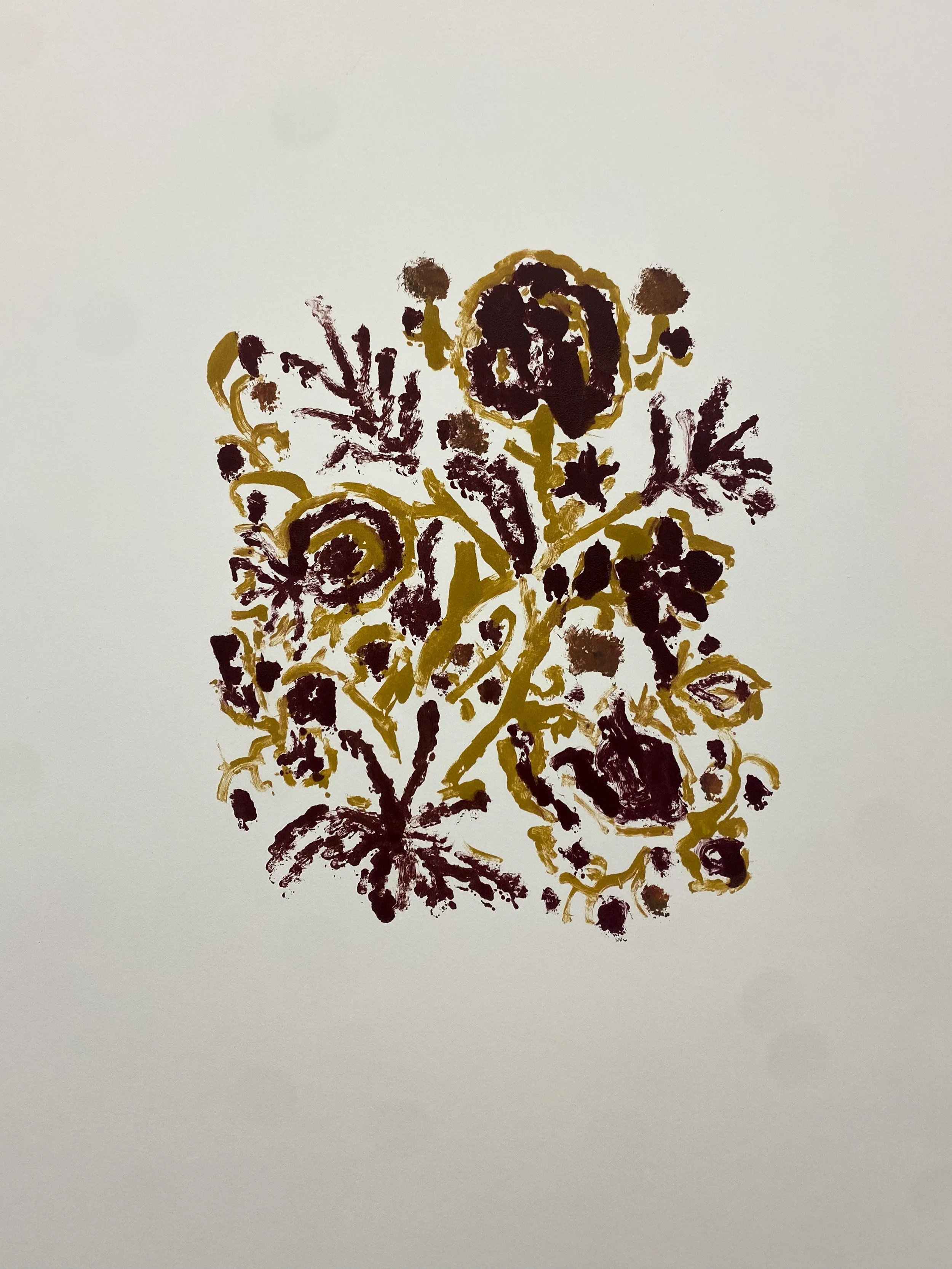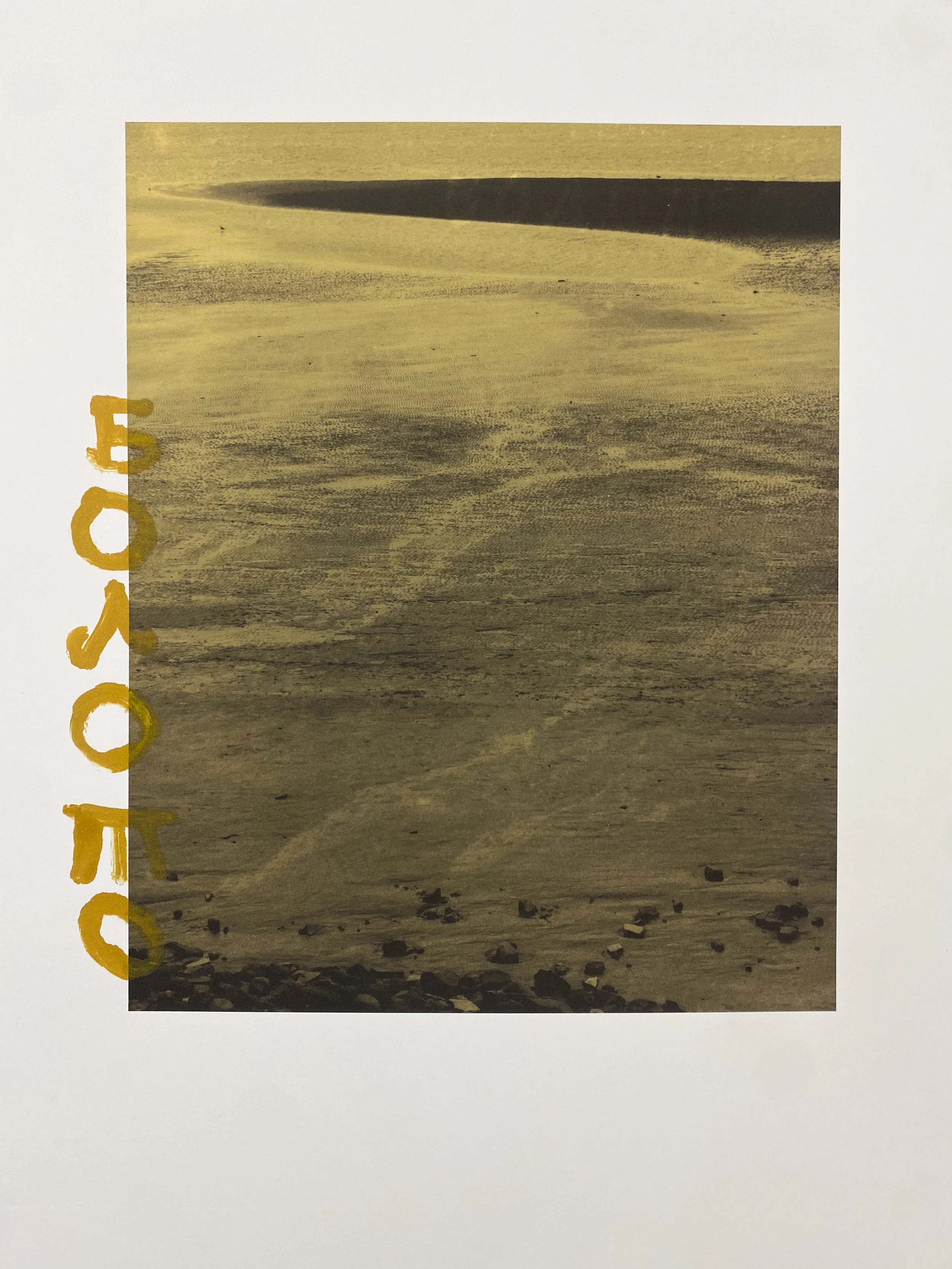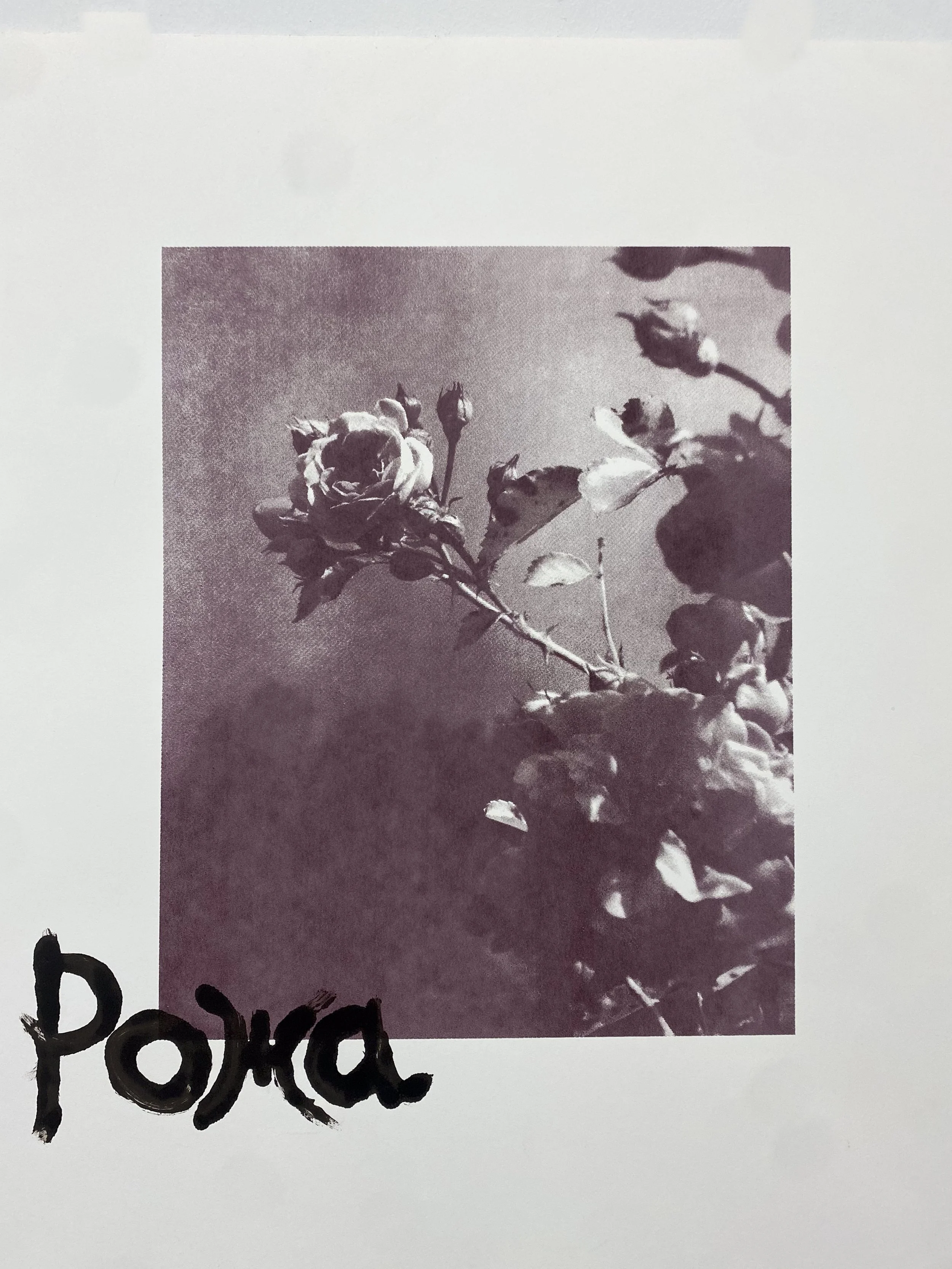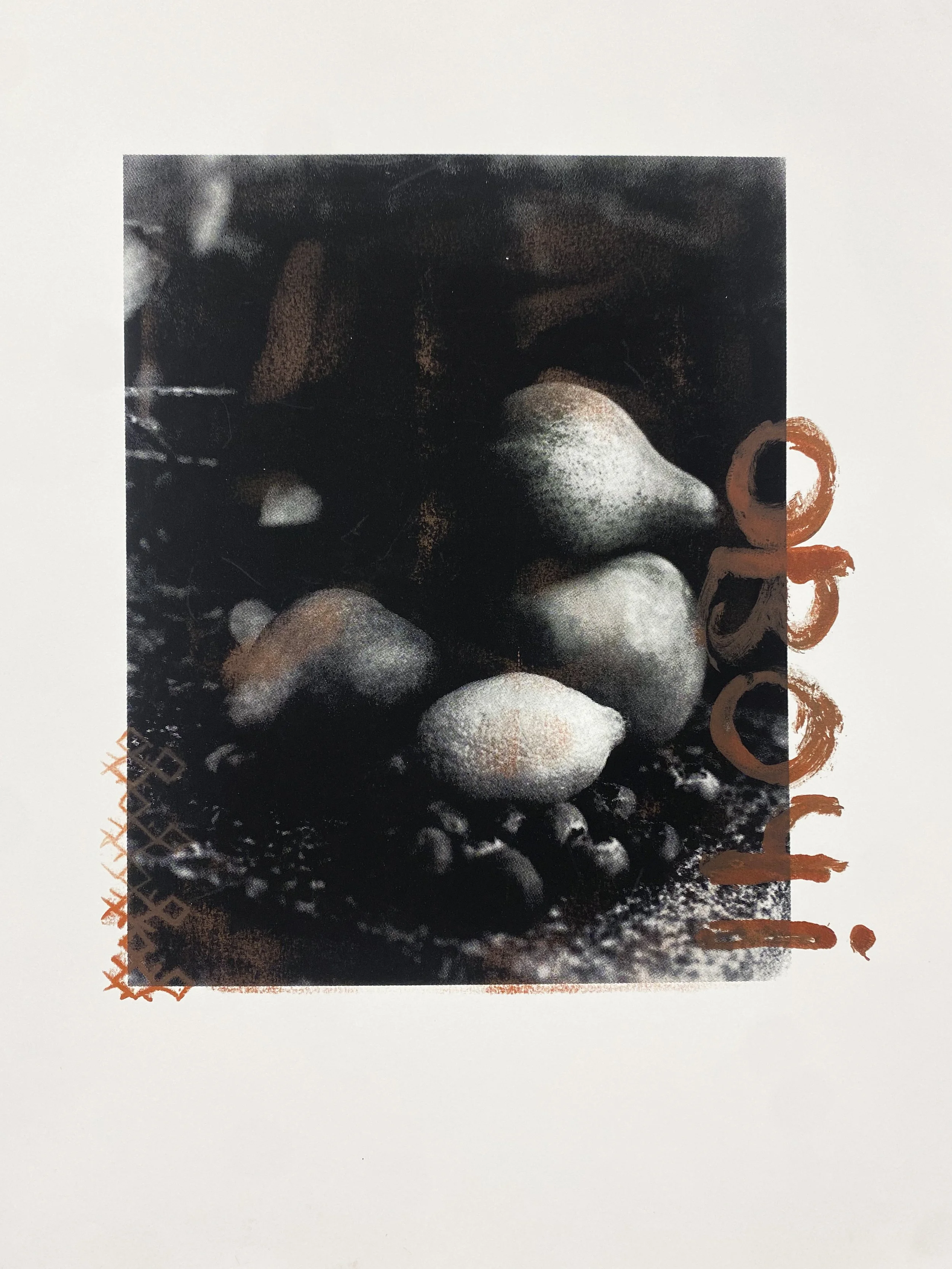Pocket Galician
2025
Ovochi 1 / Овочі 1, photo silkscreen with trace monoprint, 2025, 17x22 inches
Azbuka 1 / Азбука 1, photo silkscreen, 2025, 17x22 inches
Ya rano vstavala z sontsem 1 / Я рано вставала з сонцем 1, trace monoprint, 2025, 17x22 inches
Ya rano vstavala z sontsem 2 / Я рано вставала з сонцем 2, photo silkscreen with trace monoprint, 2025, 17x22 inches
Mnohaya Lita 1 / Многая Літа 1, trace monoprint, 2025, 17x22 inches
Mnohaya Lita 2 / Многая Літа 2, trace monoprint, 2025, 17x22 inches
Rozha 1 / Рожа 1, photo silkscreen, 2025, 17x22 inches
Rozha 2 / Рожа 2, trace monoprint, 2025, 17x22 inches
Avto / Авто, photo silkscreen, 2025, 17x22 inches
Mnohaya Lita 3 / Многая Літа 3, trace monoprint, 2025, 17x22 inches
Azbuka 2 / Азбука 2, photo silkscreen and pressure print, 2025, 17x22 inches
Rozha 1 / Рожа 1, photo silkscreen with trace monoprint, 2025, 17x22 inches
Ovochi 2 / Овочі 2, photo silkscreen with trace monoprint, 2025, 17x22 inches
This project is about a dialect of the Ukrainian language that I grew up speaking in the American diaspora called Galician. The prints point to my evolving identity as a Ukrainian-American, using original photographs, archival text and images, and personal experiences, then translating them through printmaking techniques. The repetition of images and phrases paired with my own handwriting parallel my lived experience: how the muscle memory of language can be disrupted through travel, time and war.
I am interested in how language preserves culture and memories, and in Ukraine especially, language is highly politicized. Borders and invasions have affected what languages are spoken where. The Galician dialect is spoken in small pockets of Western Ukraine but in North America, it is just as rare. It was passed down to me from my grandparents: World War 2 refugees who fled their home in 1944 with my toddler mother. Galicia is an area of Western Ukraine that became a part of Poland after World War I, and when World War II began, the Soviet Union united eastern Galicia to the Ukrainian Soviet Socialist Republic. Following the war, eastern Galicia remained a part of the U.S.S.R. and is now part of Western Ukraine.
When speaking with contemporary Ukrainians it is clear that this dialect is antiquated. For me, it’s emotional: I’ve felt embarrassed, amused, amazed, and confused. Thanks to the website, Forgotten Galicia, my experience is not solitary: there is a list of hundreds of words that may never be spoken again colloquially as generations lose the language. Working with this piece of history is my own act of resistance to the war in Ukraine.
All of the work was printed at Mirabo Press in 2025 with the support of Rachel Shelton and Bob Fleming in Buffalo, NY as part of the Growing the WNY Print Community Program, thanks to generous support from The Generator Fund and the Andy Warhol Foundation.





